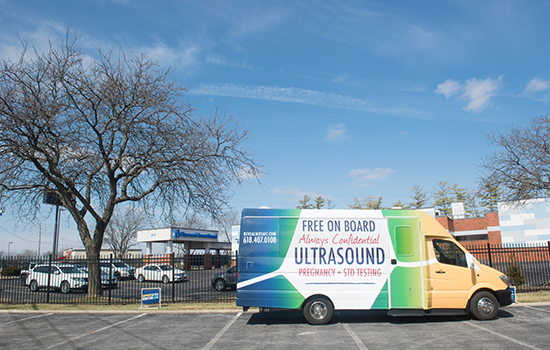The Public Leadership Institute developed this playbook to serve as a practical resource for policymakers, advocates, and community leaders seeking to hold unregulated pregnancy clinics (UPCs)—also known as crisis pregnancy centers—accountable.
While their mission is to prevent abortion, they also block access to contraception, promote fringe and medically inaccurate claims, and erode trust in the health care system. Despite their clinical appearance, and even in states where some are licensed, UPCs operate without medical oversight or accountability.
UPCs typically operate without financial transparency, despite receiving millions in taxpayer funding and investigations revealing misuse of taxpayer dollars by UPCs in multiple states.1 UPCs routinely violate fundamental ethical standards2 and vigorously resist requirements that they operate under established standards of transparency and care.3 UPCs collect private health information and claim to protect client confidentiality, but are not subject to the professional and legal obligations to protect individual privacy that govern regulated medical offices.4,5 UPC clients are thus led to believe their private health information is protected, while being exposed to privacy breaches and possible criminal prosecution. Many UPCs promote misleading medical claims without adhering to established standards of care6 and face little accountability for their operations or outcomes.
This is a policy playbook for addressing these systemic failures. It offers sensible legislative solutions and strategic tools to address UPC’s core failings: lack of health and safety standards, scant financial transparency and accountability, absence of data privacy protections, and deceptive practices. Grounded in research and developed with expert input, the playbook includes model bills, talking points, and messaging strategies that you can tailor to various state and local policy, political, and legal contexts. The models in this book can also be tailored to different policy opportunities, such as stand-alone legislation, amendments, resolutions, executive actions, community petitions, and more.
Whether you are working to ensure responsible oversight or to strengthen longstanding safeguards, this playbook offers tools to help you ensure transparency, fairness, and safety for all individuals seeking evidence-based health care in your community.
We welcome your partnership. If you have any questions about the model bills, need support tailoring policy to your state or locality, or want help shaping your strategy, please contact us at info@upcplaybook.org. We value your leadership and are always excited to support your efforts.
With appreciation,

Founder and President

Senior Director for Policy and Communications
Unregulated Pregnancy Clinics (UPCs)—also known as crisis pregnancy centers, anti- abortion centers, fake clinics, pregnancy health centers, or limited-service pregnancy centers—are organizations that frequently pose as health care clinics, but primarily work to deter people from accessing abortion, contraception, and other evidence-based reproductive health care.
While many offer pregnancy-related services, such as pregnancy tests and non-diagnostic ultrasounds, the vast majority of UPCs are not classified as medical practices and do not charge for their services, so they are exempt from the regulations, including consumer privacy protections, that govern medical clinics and medical practices.



